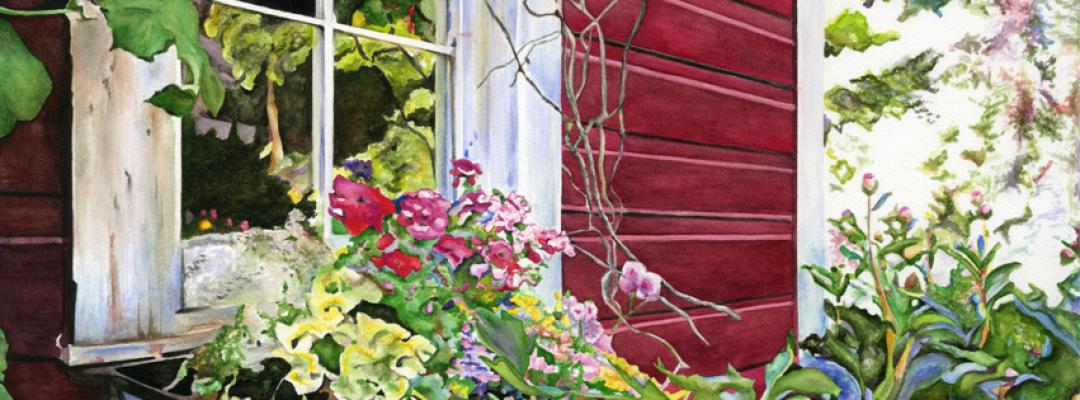
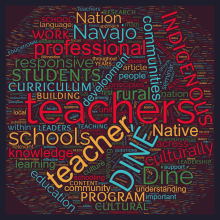
book
This article reports on the first three years of a teacher-led professional development program on the Navajo Nation. We draw on both quantitative and qualitative data from our end-of-year surveys to highlight some of the early lessons we have gathered from the Diné Institute for Navajo Nation Educators (DINÉ). We highlight two guiding principles that have developed through this work, cultural responsiveness and teacher leadership, and we suggest that these guiding principles could be useful for other professional development efforts in Indigenous-serving contexts, many of which would be characterized as “rural.” We connect these guiding principles to the broad concept of Native nation building, which situates teachers as frontline workers in Indigenous communities’ efforts to engage self-determination through self-education. A key lesson from the DINÉ is that professional development for teachers in “rural” schools serving Indigenous students must aim to build capacity among teachers so they determine the ways in which local knowledge is integrated into curriculum and everyday practice.
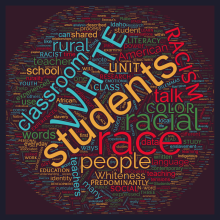
book
This study is about a seventh-grade classroom in a predominantly White region in the rural northwestern United States where a White teacher led an interdisciplinary unit on African American narratives of enslavement and freedom fighting. Through the lenses of racial literacy, critical Whiteness studies, and discourse studies, authors use data from a co-ethnographic classroom research project to examine how students grappled in talk and written assignments with tensions around how to understand race and racism in the past and present. Findings present three race talk dilemmas—race is not really a thing (but it is), just tell us the right words (but the right words aren’t enough), and we can stop racism before it starts (but can we?)—and offer windows into the tensions present in building racial literacy in predominantly White spaces as a contradictory process, not linear or one-size-fits-all. Discussion suggests that engagement with race talk dilemmas must make space for racial literacy to be seen as a relational process grounded in place and the inclusion of local experiences and histories with race.
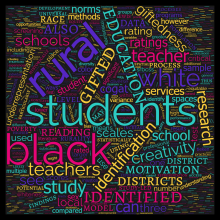
book
The enduring misperception that rural places are homogeneously White may contribute to the underrepresentation of Black students in rural gifted education programs. In this study, we sought to understand this relationship by examining the underrepresentation of Black students in rural gifted education programs through a theoretical framework of critical Whiteness studies, critical pedagogies of place, and spatial injustice. Using logistic regression, we analyzed data related to identification processes used in 11 high poverty rural school districts. These identification processes included local district-led identification strategies and study-led methods which were designed to increase equitable access to gifted education by administering a universal screening assessment, collecting teacher ratings for every student, and using local norms to interpret scores. Data analysis confirmed that Black students were identified for gifted services in greater numbers with the study-led methods and that district-led identification strategies often overlooked Black students for gifted identification. Results also indicated that teachers rated Black students lower on traits associated with giftedness even when the students had comparable scores on the universal screener. These findings point to promise in using more inclusive identification strategies and centering place in the interpretation of data as a step toward equity, but they also point to a significant need to disrupt Whiteness in rural gifted spaces. We discuss these implications and offer suggestions for further research to improve the rate of inclusion of Black students in gifted education programs as an issue of equity in rural schooling.
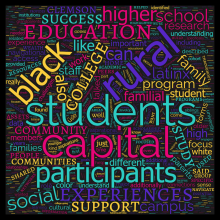
book
While there are many calls for enhancing support of Black and Latinx students on college campuses, much of the existing literature promotes deficit thinking and assumes monolithic experiences. Drawing upon Yosso’s model of community cultural wealth, we used a qualitative case study approach to examine the assets 13 rural Black and Latinx students brought to their higher education experiences in the context of a specific campus-affiliated program, Emerging Scholars. This program provides college access and college success support to high school and college students from rural communities. All participants in the study were involved in the Emerging Scholars Program at Clemson University. We held focus groups based on students’ academic year classification, and student participants shared resources and assets they employed as they navigated their pre-college and college experiences, including aspirational, familial, navigational, and social capital.
